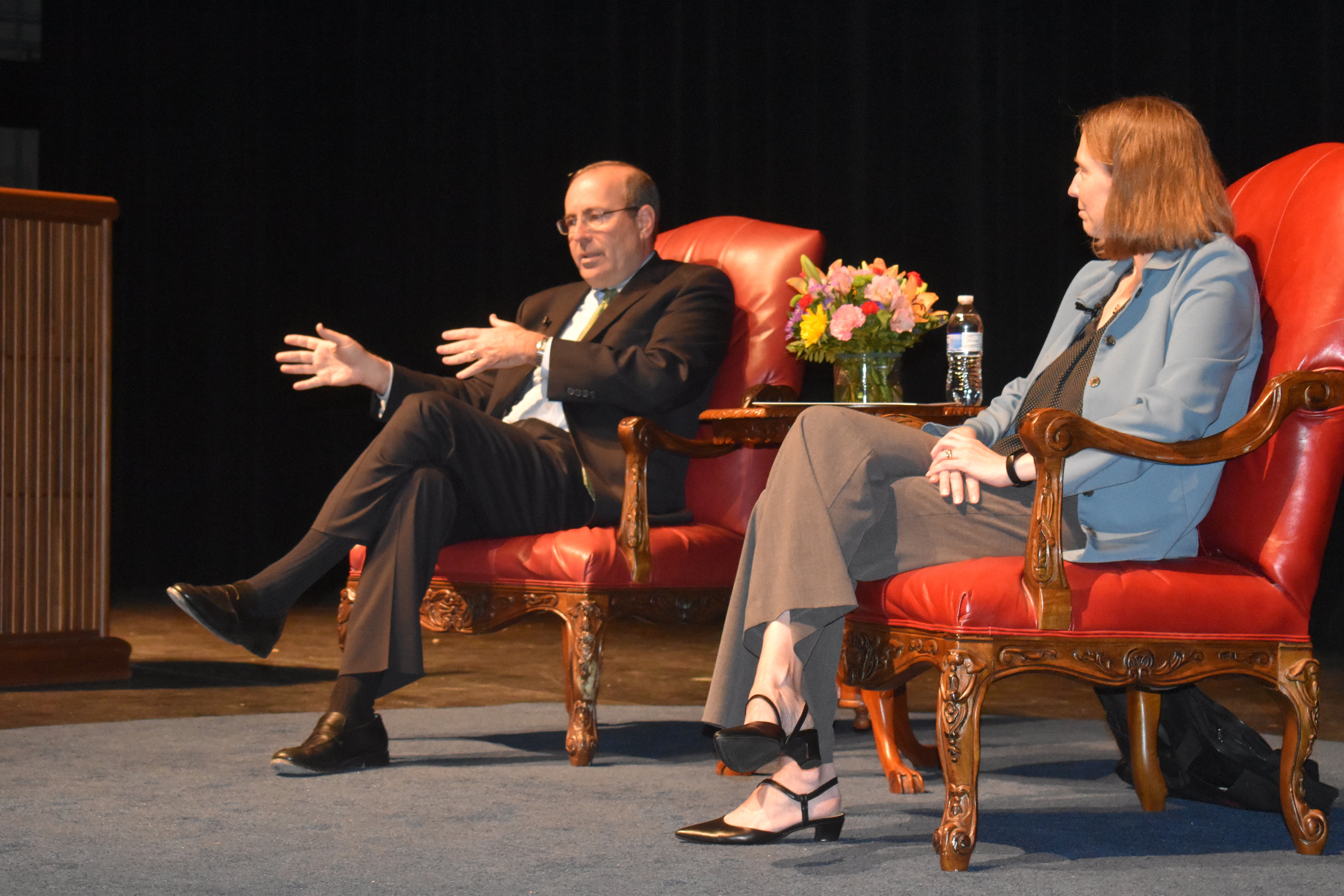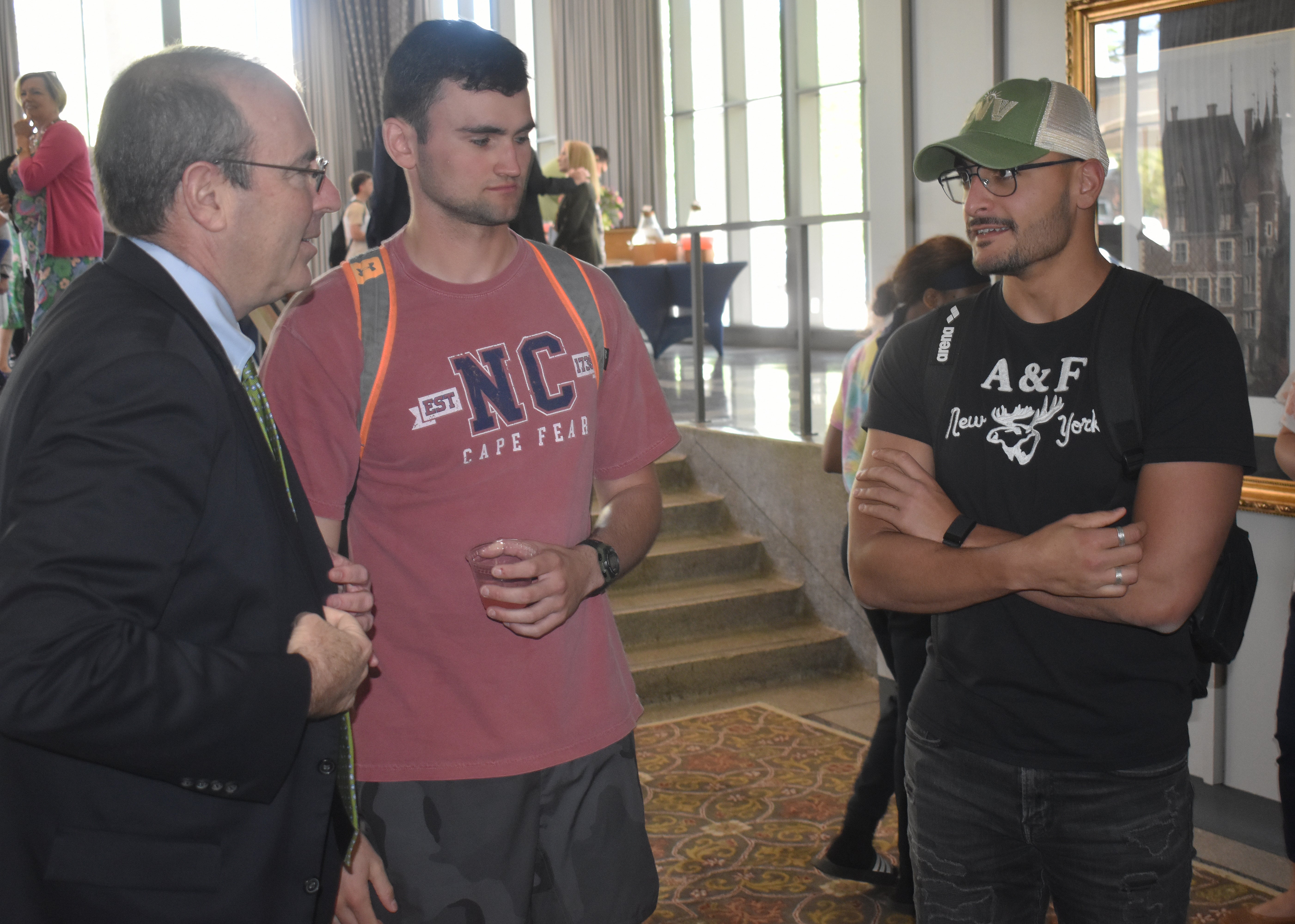Crash course in finance: Catawba College students paid visit by Fed official
Published 12:02 am Sunday, April 16, 2023
SALISBURY — Catawba College students got the chance to ask questions of a high-ranking banking official on Thursday, and many took advantage of it.
Tom Barkin, the president and CEO of the Federal Bank of Richmond, was on campus Thursday for a Q&A event.
Before taking questions, Barkin explained a few of the topics constantly swirling around his circles, including inflation, deficits and interest rates.
“I think we are on the backside of inflation,” Barkin said of the inflationary pressures that have hit the American economy during the last couple of years.
Unlike many of his contemporaries, Barkin is not as optimistic about how quickly inflation will cool off. He opts for a timetable of a couple of years rather than the couple-of-quarter estimates from the banking world.
“Where we are today, you have to believe that inflation is going to come down when demand comes down,” Barkin said.
Barkin explained that driving demand down can be achieved through measures such as raising interest rates to cap down on the housing market that erupted due to the combination of low-interest rates and the COVID-19 pandemic.
“Spending 24 hours in your house made you realize you didn’t like your house very much,” Barkin said.
Increased costs of goods caused by inflation also reduces the average families’ purchasing power, forcing them to consume less.
Barkin indicated that he sees a higher tolerance for a broader inflation range than what Americans had become accustomed to over multiple consecutive decades of relatively static inflation.
When the students’ turn came to talk, they expressed concern over their own housing prospects, as well as the future impacts of continued globalization.
Barkin explained that the United States developed a place atop the finance world as the beneficiary of favorable trade dynamics.
“We have had the wind behind us for 30 years,” Barkin said.
However, with more players on the world stage in the 21st century, that grasp becomes less tenable.
“It’s not hard to believe that for the next 30 years, globalization will present challenges,” Barkin said.
Barkin warned against hitting the panic button.
“Not every bank failure is Lehman Brothers,” Barkin said.
The bank president actually opened his presentation with a brief anecdote about a bank. The conditions he spoke about mirrored those that preempted the recent Silicon Valley Bank debacle. He shocked everyone when he said, “The bank I am describing is the First Republic Bank in Texas, and the year is 1988.”
Like the bank analogy, Barkin pointed out that history can repeat itself.
For instance, the housing market had been relatively calm before the pandemic, but it wasn’t always like that.
“For my entire life up until 2007, everyone knew that a house was the best investment you could make,” Barkin said.
Then, the financial collapse of 2008 changed that.
“In the ten years between 2010-2020, millennials decided they didn’t really want a house,” Barkin said.
As millennials began having children, the need for more space became apparent, and the housing demand increased.
Some questions from the students concerned the advent of the artificial intelligence age.
“The careers over the next forty years are going to be fluid,” Barkin said. “Educating yourself beyond your formal education is a brilliant thing. Continuous learning is critical.”
Technology has shifted the labor market before.
“Social media influencers didn’t exist 20 years ago,” Barkin said. “If AI is deployed at scale, it will replace jobs that a computer can do better than a person, so keep your skills updated. Who knows where this thing will go?”
After the event, Barkin said that he was impressed with the quality and variety of questions the students asked, adding that keeping a finger on the pulse of what the average American is thinking helps him better conduct his role at the Federal Bank.
“They asked some tough questions,” Barkin said. “I like to hear that. I get out because I don’t think you can understand the economy from our building, which is quite beautiful and literally an ivory tower. I am trying to understand how people see the economy.
“We do know that inflation is a concern, and it is incredibly helpful for me to understand how front-of-mind it is for people,” Barkin said. “As we are making policy, I like to hear from people in all sectors of the economy.”





